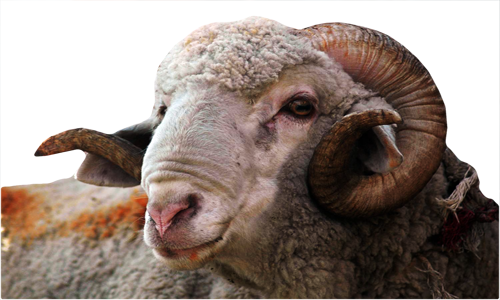market. More Gujjar and Bakerwals come to Srinagar because the rates have been decontrolled by the government. They have shown keen interest in bringing their animals in the market,” he said.
As the animals hit the market, they fetch good money. But after each passing day, the rate goes down. Kazir says the market has not been responsive to high rates this year. “They have to sell their stock at Rs 170 to 180 per kg. Rates usually go down in the last days as we can’t afford to store these animals. It involves a lot of wastage if they are stored since we open shops ten days after Eid,” he said.

The sale of animals at public places will be stopped by Thursday evening. Srinagar Municipal Corporation (SMC) Commissioner, Dr GN Qasba, has issued a notice to clear such places. “We have informed them to clear all such places where Eid prayers will be offered. From Friday, we are going to clean up such places” he said.
Around two to three lakh sacrificial animals will be slaughtered but this doesn’t bother SMC. “People slaughter their sacrificial animals religiously. They dump all waste properly like offal and blood gets buried as prescribed by our religion. However, for others, there is law,” he says. SMC is going to issue advertisements to educate people about the issue.
The supply of cattle to J&K is smooth and regular. Around 150 trucks; 70% for sacrificial purposes and 30% for shops, have already been loaded in Delhi mandi which means more animals are on their way to J&K. “We have more eight mandis which supply mutton to us” says Khazir Muhammad.
Besides Eid, Kashmiris are one of the largest consumers of mutton in India. Annually, Kashmiris consume 200 to 210 lakh kg imported mutton and 280 lakh kg local mutton, which is produced in Jammu, Kashmir and Ladakh. According to department of sheep husbandry, the local production is on rise.
“With time, as per Lower Munda post figures, the imported consumption has declined as our local production has increased. Some years back, we were importing 14 lakh sheep. But there is a decline in the trend. Last year, only 13 lakh sheep were imported” says Dr Javeed Khan, director, sheep husbandry.
Dr Khan is also of the opinion to import international breed, Finn, to Kashmir. “One ram Finn sheep gives multiple births, usually three, and it can increase our mutton production by 50 percent. The proposal has been forwarded to central government and we are waiting for their nod.”















